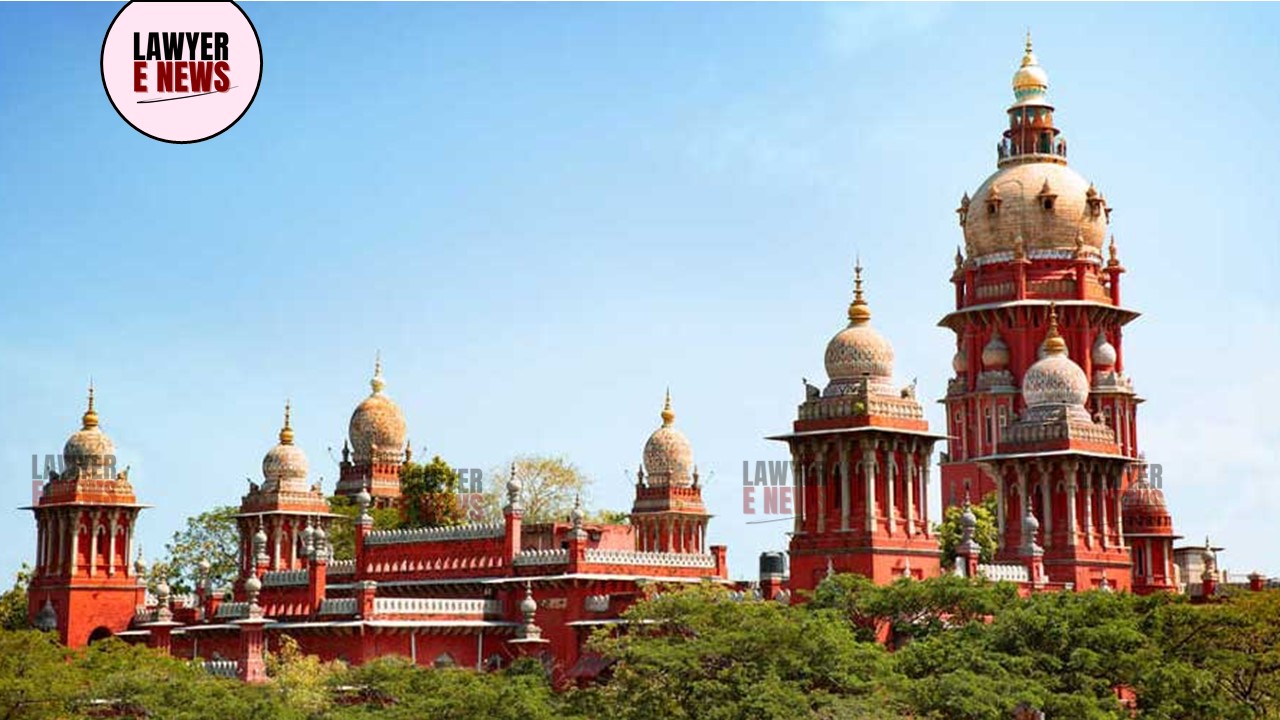-
by Admin
18 February 2026 2:25 PM



“Since the Accused Has Paid the Cheque Amount in Full, Compensation Would Meet the Ends of Justice” — In a judgment that strikes a balance between legal principle and practical justice, the Madras High Court modified the punishment of imprisonment to compensation in a cheque dishonour case under Section 138 of the Negotiable Instruments Act, after the accused paid the entire cheque amount. Justice P. Velmurugan observed that “the ends of justice would be met if the sentence of imprisonment is substituted with compensation to the complainant’s legal representative.”
The Court was dealing with a challenge to concurrent findings of conviction by the District Munsif-cum-Judicial Magistrate Court, Arcot and the II Additional District and Sessions Judge, Vellore at Ranipet, both of which had sentenced the petitioner to one year of simple imprisonment for dishonour of a cheque for ₹5,00,000.
“Conviction Was Based on Proper Evidence — But Imprisonment No Longer Necessary”
The petitioner, A.S. Chandrasekar alias Chandru, was convicted for issuing a cheque bearing No.634313 for ₹5 lakhs, drawn on SBI, Arcot Branch, which was returned unpaid with the endorsement “funds insufficient”. Despite receiving a legal notice dated 30.01.2017, the petitioner neither replied nor made payment, prompting the original complainant, A.L. Sivakumar, to initiate proceedings under Section 138 NI Act.
The trial court, after due consideration of oral and documentary evidence — including the dishonoured cheque, return memo, legal notice, and bank statement — convicted the petitioner. The appellate court confirmed the conviction even after the complainant passed away, and his wife, S. Sudha, was brought on record as the legal representative.
Justice Velmurugan held: “The petitioner has not produced any evidence to rebut the presumption under Section 139 NI Act. The conviction recorded by both courts is based on proper appreciation of materials and cannot be interfered with in revision.”
“Law Permits Substitution of Sentence with Compensation in Suitable Cases”
What tilted the case in favour of the petitioner was his willingness to pay the entire cheque amount, thus fulfilling the financial obligation. The High Court recorded that:
• ₹2,50,000 had already been deposited before the trial court.
• The remaining ₹2,50,000 was paid in court on the date of hearing through demand draft handed over to the respondent's counsel.
Acknowledging the petitioner’s full compliance, the Court ruled: “Since the petitioner has paid the entire cheque amount as compensation, the sentence of imprisonment alone is modified into payment of compensation to the respondent.”
The Court further directed: “The imprisonment already undergone shall be treated as punishment, and the petitioner shall be set at liberty.”
While upholding the conviction, the Madras High Court demonstrated judicial pragmatism by allowing the accused to avoid further incarceration in view of full payment of the dishonoured cheque amount. The ruling reaffirms that Section 138 NI Act is compensatory in nature, and once the financial damage is redressed, punitive consequences can be relaxed in appropriate cases.
“In cheque bounce cases, the purpose is recovery, not retribution — and when the drawer has paid up, justice must be flexible enough to acknowledge it,” the Court essentially declared.
Date of Decision: 21 April 2025
